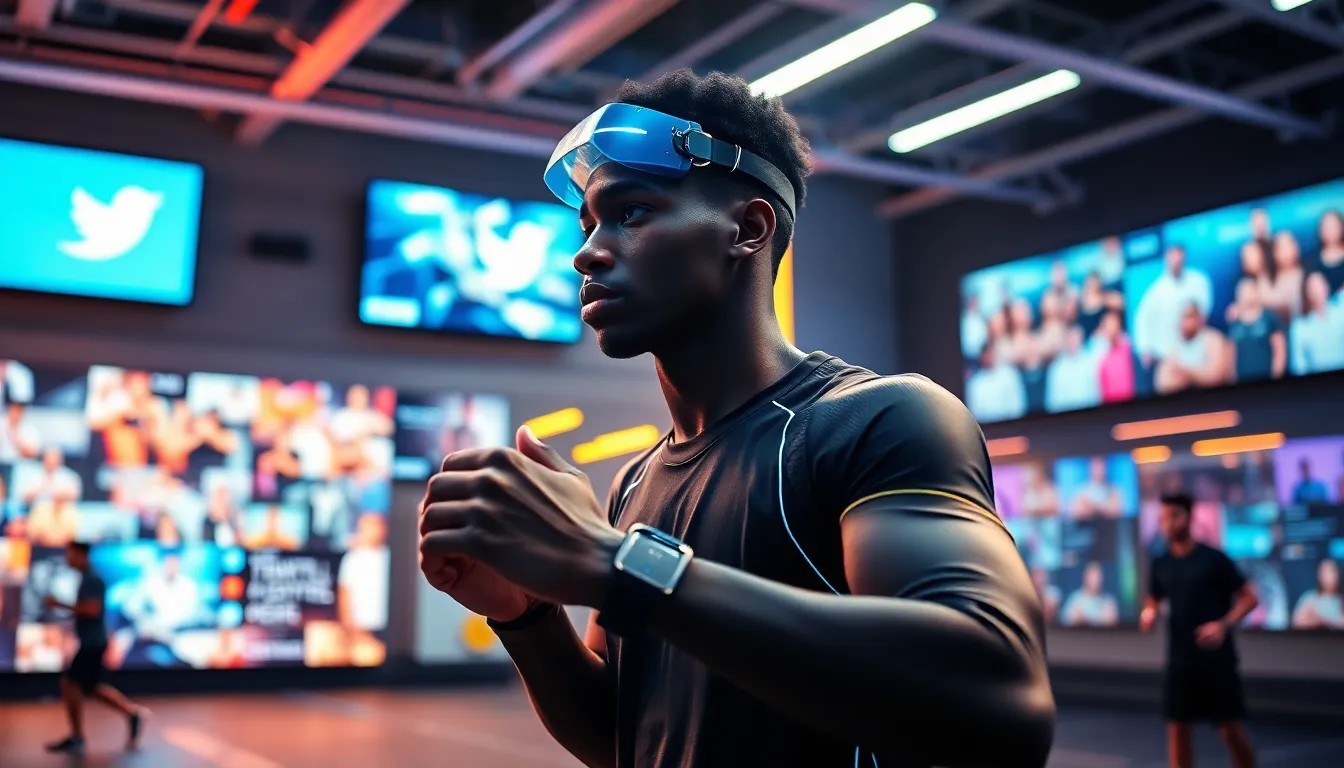In an ever-evolving world, sports stand as a dynamic reflection of society. Today, they encompass technology, cultural movements, and sustainability, framing the conversation around what it means to engage with sports in the modern era. As fans navigate these waters, it’s essential to look closely at the latest trends shaping the sports landscape.
This article dives deep into the intersection of sports, uncovering how technology, social media, cultural movements, and future trends influence how we experience and enjoy sports.
Table of Contents
ToggleThe Evolving Landscape Of Sports

Technology’s Role In Shaping Sports
The integration of technology into sports has reshaped everything from training to fan engagement. Wearables, such as fitness trackers and smart uniforms, enable athletes to monitor their performance in real-time, offering insights that can enhance training regimens and performance outcomes. This technological revolution also extends to broadcasting, where augmented reality (AR) and virtual reality (VR) are creating immersive viewing experiences, allowing fans to feel connected like never before.
Plus, data analytics plays a significant role in shaping strategies for teams. Coaches and players harness data to identify strengths, weaknesses, and optimal plays. The use of artificial intelligence in analyzing player performances has become commonplace, giving teams a competitive edge that was previously unimaginable. As technology continues to advance, its importance in sports will only grow.
Social Media’s Impact On Sports Engagement
Social media has become a pivotal platform for sports organizations to connect with fans. Twitter, Instagram, and TikTok serve as avenues for real-time updates, behind-the-scenes content, and fan interactions. Athletes are leveraging these platforms to build personal brands, often transcending their sports and creating global followings. The impact is palpable: engagement metrics are soaring, and teams are tapping into these channels to cultivate community and loyalty among increasingly diverse fan bases.
Also, social media is also changing how fans consume sports. Highlights, commentary, and fan reactions create an interactive experience that transcends traditional broadcasting. Fans no longer merely consume sports: they participate in a lively dialogue surrounding games, players, and events. This shift has transformed the sports ecosystem, creating opportunities and challenges for teams and athletes alike.
Cultural Movements Influencing Sports
The Rise Of Esports
Esports have emerged as a formidable force in the world of competitive sports. Once seen as a niche area, competitive gaming has exploded in popularity, attracting millions of viewers and sponsors alike. Esports tournaments fill stadiums, and many traditional sports franchises are investing heavily in this realm.
The demographic of esports audiences often skews younger, reflecting a shift in how entertainment is consumed. This change positions esports as a viable career path for many aspiring athletes and content creators. The connections between traditional sports and esports also highlight the need for innovation and engagement strategies that resonate with a new generation of fans.
Diversity And Inclusion In Sports
Contemporary sports culture is increasingly influenced by movements advocating diversity and inclusion. Organizations are recognizing the importance of representation, not just for the teams but also in broader leadership and administrative roles. Initiatives aimed at promoting gender equality, racial representation, and LGBTQ+ rights are resonating with fans and players alike.
This cultural shift is redefining what it means to be a sports organization in the 21st century. Instead of being seen as merely entertainment, sports entities are viewed as platforms for social change. Fans are more likely to support teams that align with their values, adding an essential layer to brand loyalty and engagement.
The Future Of Sports: Trends To Watch
Sustainability In Sports Operations
As climate change becomes an increasingly pressing issue, sustainability has emerged as a key focus for sports organizations. Teams and leagues are implementing green initiatives, from using renewable energy to prioritizing sustainable materials in merchandise and infrastructure. Major events, such as the Olympics and World Cup, are under scrutiny to set a high standard for eco-friendly practices.
These shifts not only reflect corporate responsibility but also respond to the growing demands from fans who prioritize sustainability in their consumption choices. As the world adjusts to the implications of climate change, sports organizations that embrace sustainable practices are likely to garner respect and loyalty from a conscientious audience.
Fan Experiences In A Digital Age
The landscape of sports consumption continues to evolve, with digital engagements shaping fan experiences. Enhanced streaming services offer unprecedented access to games and news, while apps provide real-time interaction via polls, quizzes, and social media feeds. The rise of mobile technology has transformed how fans experience games, allowing them to customize their viewing and engagement levels.
Also, innovations in fan experiences, such as virtual stadium tours or interactive fan forums during broadcasts, are set to enhance emotional connections. This evolution not only attracts younger audiences but also brings established fans closer to the action, irrespective of their geographical location.
Conclusion
The intersection of technology, culture, and sustainability in sports offers a glimpse into a future where the experience of fans and athletes alike continues to evolve. As the digital age progresses, understanding these trends will provide fans, organizations, and stakeholders with the necessary insights to navigate the rapidly changing landscape.
Embracing change while fostering a culture of inclusivity and innovation is not just essential for the success of sports: it is crucial for the very fabric of society. The ongoing dialogue around these intersections not only enriches the sporting experience but also contributes to a broader understanding of community and engagement in today’s world.



